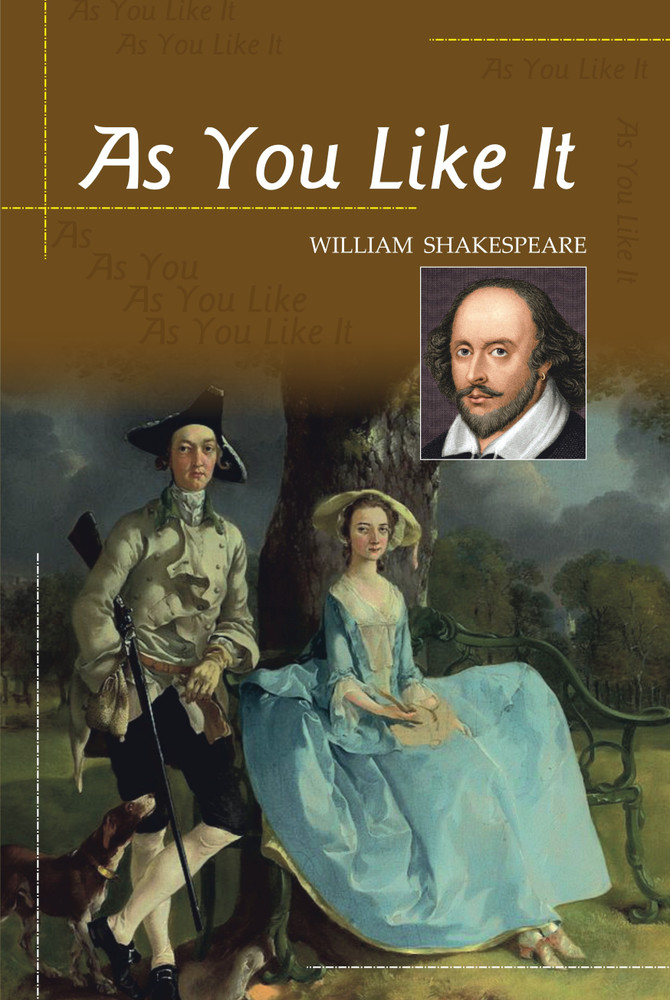Table of Contents
ToggleIntroduction
As You Like It Summary And Themes By William Shakespeare As You Like It is one of William Shakespeare’s most beloved comedies, first published in 1623 in the First Folio and likely written around 1599. The play is set in the Forest of Arden and tells the story of Rosalind, the play’s heroine, who flees her uncle’s court after she is banished. It explores themes of love, identity, the role of women in society, and the contrast between the artificial court life and the freedom of the natural world.
The play, like many of Shakespeare’s works, focuses on mistaken identities, disguise, and the exploration of different types of love—romantic, familial, and platonic. Its blend of humor, pastoral themes, and philosophical exploration has made it a timeless work, relevant for both its social commentary and the depth of its characters.
In this 4000-word analysis, we will provide a detailed summary of the play, discuss its themes and characters in depth, and explain the major motifs and messages embedded within it. significance, structure, and key elements.
Summary of As You Like It
As You Like It opens with a political dispute between the Duke Senior and his brother, Duke Frederick. Duke Senior has been usurped from his position and exiled to the Forest of Arden. Meanwhile, Duke Frederick has taken control of the court and banished his niece, Rosalind, who is the daughter of Duke Senior.
Rosalind is a strong-willed and intelligent young woman who has grown up in the court. She forms a close friendship with her cousin, Celia, the daughter of Duke Frederick. The two women, who are very different in temperament, decide to flee to the Forest of Arden after Duke Frederick turns against Rosalind and banishes her from court. To protect themselves, Rosalind disguises herself as a young man named Ganymede, and Celia disguises herself as a shepherdess named Aliena. Together, they begin their journey into the forest.
In the Forest of Arden, they encounter a group of exiled nobles, including Rosalind’s father, Duke Senior, who has formed a peaceful and harmonious life in exile, in stark contrast to the corrupt court from which they came. They also meet a number of characters who will play important roles in the unfolding romantic entanglements, including the melancholic Jaques, the fool Touchstone, and the young Orlando.
Orlando, who is also exiled from his home and is in love with Rosalind, enters the forest to escape the pressures of his older brother, Oliver, who has mistreated him. Orlando has been writing poetry to Rosalind and hanging it on trees in the forest, hoping to attract her attention. When Rosalind (disguised as Ganymede) encounters Orlando, she offers to cure him of his lovesickness by pretending to be Rosalind and coaching him in the art of wooing her. Orlando, unaware of Ganymede’s true identity, agrees.

As the play progresses, other romantic pairings emerge. Touchstone, the court jester, falls in love with a country girl named Audrey, and Silvius, a shepherd, is in love with the shepherdess Phoebe. Meanwhile, Rosalind’s disguised role as Ganymede leads to confusion and comedic situations, especially when Orlando begins to fall deeper in love with the disguised Rosalind, not realizing that she is, in fact, his true love.
The play culminates in a series of joyful revelations. Rosalind reveals her true identity to Orlando, and the couple is united. Phoebe, who had initially rejected Silvius, is charmed by Ganymede’s appearance and, upon realizing the truth, agrees to marry Silvius. In the end, the various couples are paired, including Touchstone and Audrey, and the characters return to Duke Frederick’s court, where Duke Senior is restored to his rightful position. The play concludes with a wedding celebration and a final reflection on the nature of life and love.
Themes in As You Like It
1. The Nature of Love
One of the central themes of As You Like It is the exploration of love in its various forms. The play contrasts different types of romantic love, including the idealized love of Orlando and Rosalind, the unrequited love of Silvius for Phoebe, and the somewhat unconventional love of Touchstone for Audrey. Shakespeare uses the forest setting as a metaphor for the freedom that love allows, where characters are free to pursue love without the constraints of society.
Rosalind and Orlando’s love is portrayed as genuine and passionate, but also rooted in wit and intelligence. Their courtship involves verbal sparring, wit, and disguise, which adds layers of complexity to their relationship. The play suggests that true love is not only about physical attraction but also about mutual respect, understanding, and emotional depth.
Other portrayals of love, such as Phoebe’s obsession with Ganymede and the less idealized love of Touchstone and Audrey, serve as comic relief but also highlight the play’s critique of superficial or unrequited love. Through the contrast between these various relationships, Shakespeare suggests that love, while central to human experience, is messy and complicated.
Read more
2. Disguise and Identity
Disguise and mistaken identity are key motifs in As You Like It. Rosalind’s disguise as Ganymede is one of the most important plot devices in the play, allowing her to take on a male persona and manipulate the other characters’ perceptions of her. The theme of disguise in the play raises questions about identity, gender, and the roles people play in society.
Rosalind’s ability to disguise herself as Ganymede allows her to assume control of her romantic destiny. It gives her the power to challenge gender norms and create an idealized version of love on her own terms. The play also explores the fluidity of gender, as Rosalind’s disguise leads her to both masculine and feminine roles, questioning the rigidity of social roles.
Moreover, the theme of disguise allows for the comedic misunderstandings and romantic entanglements that drive much of the plot. Characters in the play wear literal and metaphorical disguises, leading to confusion, mistaken identities, and moments of self-revelation.
3. The Contrast Between Court and Country
The contrast between the corrupt and artificial life at court and the natural and harmonious existence in the Forest of Arden is another key theme of the play. The court represents a world of political intrigue, jealousy, and deception, where characters like Duke Frederick manipulate and betray each other for power. In contrast, the Forest of Arden offers a more peaceful and idyllic setting where characters can escape from the constraints of society and explore their true selves.
The play suggests that the court is a place of falsehood and moral decay, while the country, despite its simplicity, provides a space for personal growth and authentic relationships. This contrast is symbolized by the characters’ move from the court to the forest, where they are freed from the rules of the political world and can engage in self-discovery and love.
4. Gender Roles and Feminism
As You Like It is often considered a feminist play due to its portrayal of strong and independent female characters. Rosalind, in particular, challenges traditional gender roles through her disguise as Ganymede, which allows her to navigate the male-dominated world of the Forest of Arden with more freedom and authority. By taking on a male persona, Rosalind is able to interact with Orlando on equal terms, demonstrating her wit, intelligence, and independence.
Shakespeare also explores the role of women in society through the relationship between Rosalind and Celia. While Rosalind is a bold and assertive character, Celia is more passive and devoted to her cousin. Their friendship provides a commentary on the different roles women can play in society, from the active and independent to the more traditional and supportive.
In the play’s conclusion, the resolution of romantic entanglements reinforces the idea that women, like men, are entitled to choose their own partners and pursue love and happiness on their own terms.
5. The Power of Friendship
In addition to romantic love, As You Like It emphasizes the importance of friendship. The close bond between Rosalind and Celia provides emotional support and guidance throughout the play. Their relationship is based on mutual respect, loyalty, and a shared sense of adventure, making it one of the strongest emotional threads in the play.
The friendship between Rosalind and Celia is also important because it allows for Rosalind’s transformation in the forest. Celia’s loyalty to Rosalind and willingness to accompany her into exile demonstrates the strength of their bond. Their friendship serves as a contrast to the romantic relationships in the play, highlighting the different ways love can manifest.
Read more
Literary Techniques in As You Like It
1. Use of Language and Wordplay
Shakespeare is known for his use of language and wordplay, and As You Like It is no exception. The play is full of puns, witty exchanges, and clever dialogue, particularly in the interactions between Rosalind and Orlando. These playful exchanges serve not only to entertain but also to explore deeper themes of identity, love, and power dynamics.
Rosalind’s use of disguise and her witty exchanges with Orlando exemplify Shakespeare’s use of language to challenge social norms and conventions. Through the power of language, Rosalind can manipulate situations and express herself freely, showing the importance of language in shaping identity and relationships.
2. Pastoral Setting and Imagery
The Forest of Arden is a quintessential pastoral setting, which has long been associated with simplicity, natural beauty, and a retreat from the complexities of urban life. Shakespeare uses the forest setting to explore themes of freedom, renewal, and transformation. The imagery of nature contrasts with the artificiality of the court, providing a space for characters to engage with their emotions and relationships in an unencumbered way.

Conclusion
As You Like It is a play rich in themes of love, identity, gender, and social commentary. Its exploration of disguise, mistaken identity, and the contrasts between court and country provide both comedic elements and insightful reflections on the human condition. Through its memorable characters and witty dialogue, Shakespeare’s As You Like It remains a timeless exploration of life, love, and the pursuit of happiness.
Read more
(FAQ)
1. Why is As You Like It considered a comedy?
As You Like It is considered a comedy due to its lighthearted tone, humorous situations, and happy ending. The play revolves around mistaken identities, love, and the resolution of conflicts, which are typical features of Shakespearean comedy.
2. What is the significance of the Forest of Arden in the play?
The Forest of Arden represents freedom, simplicity, and a return to nature. It contrasts with the corrupt and artificial world of the court, allowing characters to experience personal growth and self-discovery. The forest becomes a symbol of escape from societal constraints.
3. How does the theme of disguise affect the plot?
The theme of disguise drives the plot by creating confusion, mistaken identities, and comic situations. Rosalind’s disguise as Ganymede allows her to manipulate the romantic relationships of the characters and explore gender roles, ultimately leading to a resolution of the play’s conflicts.
4. What is the role of Rosalind in the play?
Rosalind is the play’s central character, whose intelligence, wit, and independence make her a key figure in the resolution of the play. She challenges gender norms, manipulates her romantic destiny, and embodies Shakespeare’s ideal of strong female characters.
5. How does As You Like It address themes of social hierarchy?
As You Like It critiques the social hierarchy by contrasting the corrupt, power-driven court with the egalitarian, peaceful life in the Forest of Arden. The play suggests that personal relationships and individual freedom are more important than social status or political power.
Read more
















